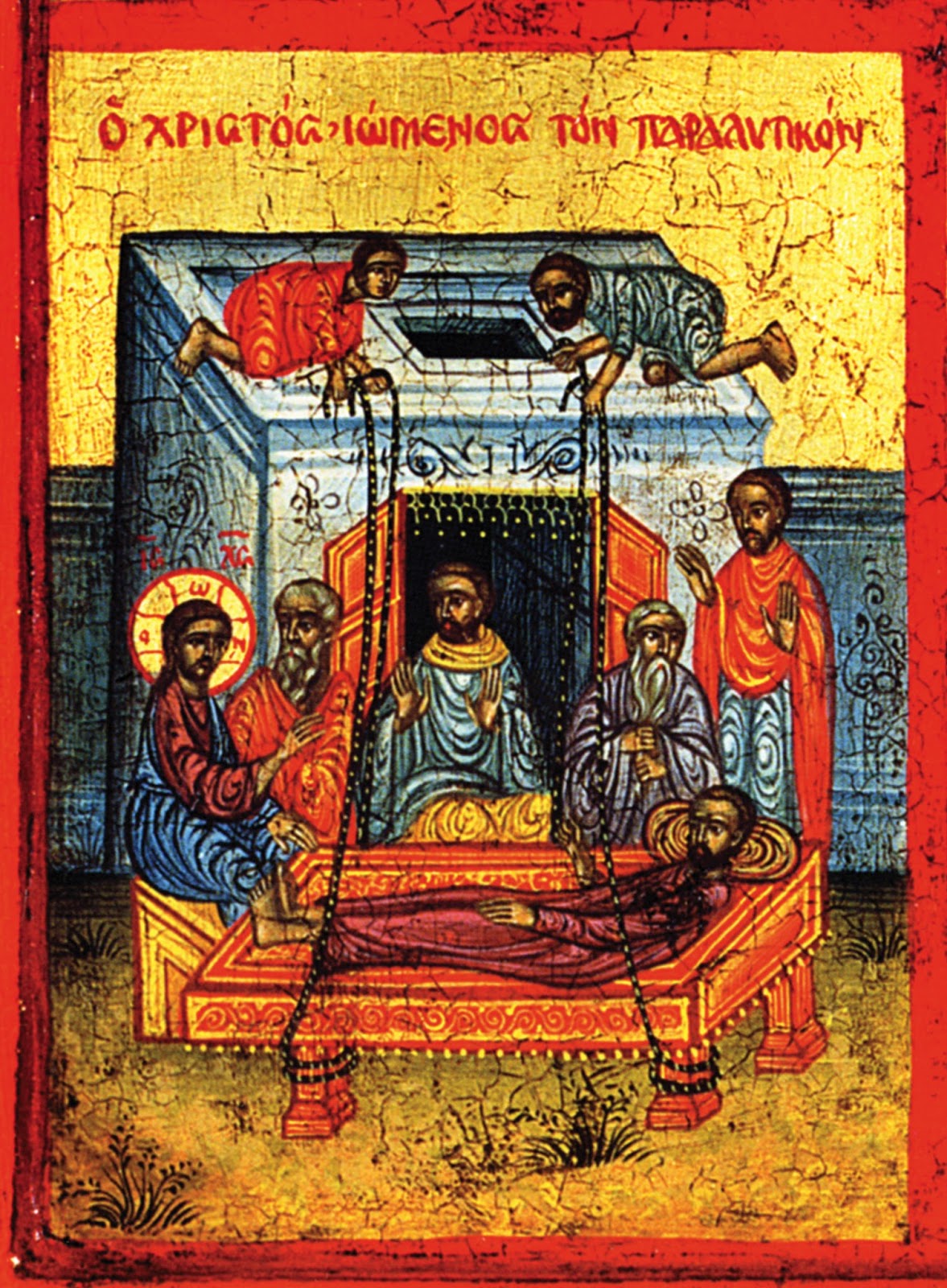THE EASTERN CHURCH DOESN'T make images of the moment of Resurrection. The Easter Icon is titled The Descent into Hades: that Christ has gone down into the very deepest place of darkness, fear, sin and loss and there, unwilling to lose anything that belongs to God, retrieves Adam and Eve from their tombs and all those who are waiting for their salvation.
The mountains or caverns to left and right seem to hold Christ who descends to the underworld in a sphere of light. Everything radiates with the energies of the Resurrected Christ. Adam and Eve seem to be the last ones plucked from eternal loss, while Moses and the kings of Israel observe. Christ's movements, striding over the gates of Hades, suggest the Easter Hymn: Christ is Risen from the dead, trampling down death by death and upon those in the tomb, bestowing life!
I Corinthians 15: 20-25
Look! Christ the Life descends into Hades,
and there he overwhelms the doors of death.
He searches for Adam and Eve in their tombs
restoring each to life.
Having great compassion upon our race,
Christ the Victor plunders hell.
The friends of God wait patiently
as Christ reclaims everything for God.
In the dark abyss the doors of death
become useless in defending their cause.
Christ the Light descends into darkness:
locks and bolts fail before his advance.
When the Victor pulled Adam and Eve from the tombs,
he had me in mind as well.
Let us marvel at Christ whose power is great,
and whose triumph spares us disillusionment and fear.
The deepest darkness runs away,
as the Easter Christ makes the underworld bright.
Let us rejoice with those who are found by Christ,
and increase joy where there's weariness and sorrow.
Wax melts before the flame,
as the power of death yields to Christ.
Adam and Eve secured from death's cold grasp;
earth rejoices in a springtime of rebirth.
Death, while a very great power, is only the second:
the Resurrection of Christ is first.
Glorify Christ who has gone to such depths,
for love of us!
The myrrh-bearing women wondered before the empty tomb
as the angel rolled back the great stone.
And as Caesar's guards collapse in fear,
earthly empires are confounded.
When the Lord invaded the shadowy realms
in a sphere of Easter radiance,
he spoke to Eve a word of life,
to the transformation and renewal of our minds.
The Lord is Risen from the dead:
ice melts,
ice melts,
the ground warms and greens.
And we can change!














